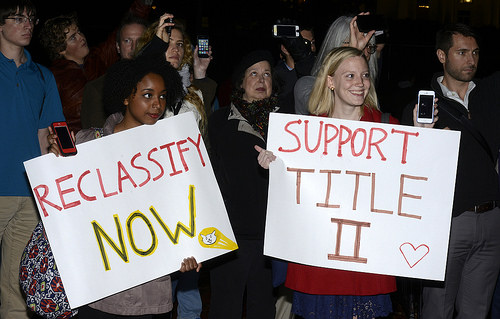My Comment to the FCC
Posted by David Zaslavsky onIt’s finally time. After reading through something like a thousand pages of FCC filings, laws, court judgments, and other assorted documents, writing a thousand lines in the first and second parts of this series, and missing about a thousand hours of sleep over the past week, I am, at last, at the end of my quest to compose a comment on the FCC’s proposal to gut net neutrality. (The comment itself is at the bottom. I wouldn’t make it that easy on you!)
Filing a comment
I’ll be using https://www.battleforthenet.com to file my comment, because the form there also forwards what I write to my Congressional representatives and Senators. They’ve written a default comment for people who don’t want to craft their own, and it reads as follows:
The FCC’s Open Internet Rules (net neutrality rules) are extremely important to me. I urge you to protect them.
I don’t want ISPs to have the power to block websites, slow them down, give some sites an advantage over others, or split the Internet into “fast lanes” for companies that pay and “slow lanes” for the rest.
Now is not the …

